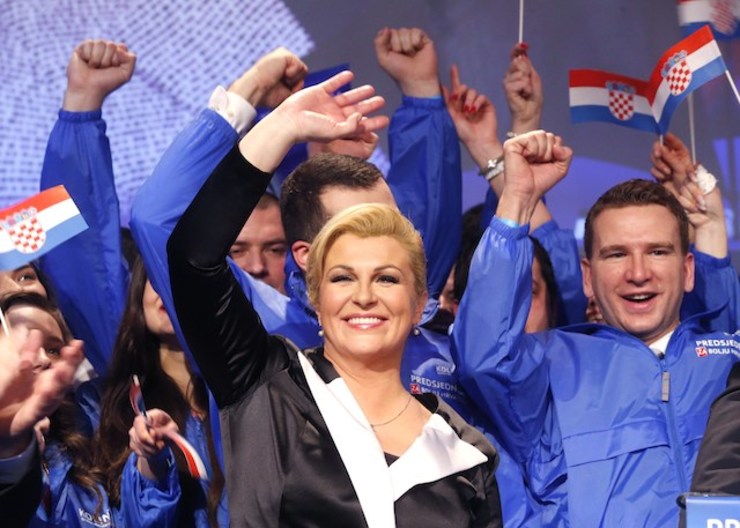Croatia has elected its first female president yesterday: Conservative politician Kolinda Grabar-Kitarović. This has been a male job ever since the country became independent after the breakup of Yugoslavia in 1991. The office, which is largely ceremonial, has been held by three people since then. Ivo Josipovic was the incumbent president, a 57-year-old law professor and classical composer, backed by the governing centre-left SDP party. He has failed to secure a five-year term re-election only by a narrow margin. With 99% of the ballots counted he amassed 49.5% of the electorate, to Ms Kitarović’s 50.5%.
The conservative party that backed her candidacy is currently in the opposition, and managed to capitalise on the public sentiment against the government’s managing of the recession. The latest member of the EU since 2013, Croatia has been mired in a protracted gloomy financial climate for the past six years. Gross domestic product contracted by 0.9% in 2014 in this tourism-centred economy, and unemployment reached 16.6%, the fourth highest in the EU. Nearly half of Croatians aged under 25 have no work.
In the past Ms Kitarović has served as a Nato official and ambassador to the US. During her presidential campaign she had to deflect criticism of her role in former Prime Minister Ivo Sanader’s government. As foreign minister from 2005 to 2008, she led Croatia’s efforts to enter the EU.
In the wake of the results and with a view to the cohabitation with Zoran Milanović‘s centre-left government until next year’s parliamentary elections, Ms Kitarović has said: “I won’t be dividing our people and on the contrary I’ll seek to get together in order to resolve all problems that we have right now…from bad economy to social issues of our people”.



